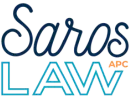Special Education Student Discipline
Special Education Student Discipline
What is special education, and who is eligible?
Special education is federal and state-regulated programs that are meant to cater to the educational needs of children with disabilities or special needs. Although both federal and state laws regulate special education programs, a state can never limit the protections under federal law. However, individual states can expand protections beyond federal laws. For example, California makes it mandatory for all school districts to provide a free appropriate public education (FAPE) to students with disabilities.
Children who have one or more of the following disabilities are eligible for special education:
- Visual, speech, hearing, or other physical impairments
- Intellectual disabilities
- Emotional disturbances
- Autism
- Developmental delay
- Traumatic brain injury
- Specific learning disabilities
It is important to note that even with a medical diagnosis for a disability, your child may still not qualify for special education. Instead, school districts will typically evaluate whether a child’s disability has a significant and negative impact on his or her educational performance. The districts will also consider whether other accommodations can meet the child’s educational needs. In most cases, if standard education programs can accommodate the child, then he/she is not eligible for special education under California Education Code 56026(b).
School discipline for special education children
Children with special needs can be disciplined the same way as children without disabilities. This includes suspensions and expulsions. However, California laws provide additional rules and regulations that ensure schools take into account a child’s disability when taking disciplinary action. These rules of special consideration include:
- Manifestation determination – the school should hold a manifestation determination meeting to determine whether a student with a disability should be expelled
- The school should also take into consideration special circumstances such as incidences involving weapons, drugs, and serious bodily injury
- How to discipline a child with a disability who has not yet been determined eligible for IEP
- How to discipline a child with a disability and who is eligible for a Section 504 Plan
Grounds for suspension and expulsion
Although students with IEP and 504 Plans are given special considerations, California law does not exempt them from suspensions and expulsions. The general rule is that schools cannot suspend for more than 10 days or expel eligible students with disabilities without an IEP team deciding otherwise in a manifestation determination meeting.
In more severe cases, students can be suspended or expelled for any one of the misbehaviors listed in California Education Code 48900. Some common examples of misconduct that may lead to suspensions or expulsions include but are not limited to:
- Causing or threatening to inflict physical injury on another
- Possessing dangerous objects or weapons like knives, guns, or explosives on school grounds
- Unlawfully possessing, using, or selling drugs and alcohol
- Committing or attempting to commit robbery
- Stealing or attempting to steal school or private property, among other offenses
For the school to enact a suspension or expulsion, the acts must be related to school activity and attendance. This means that the misconduct need not only occur on school grounds alone but also; while the student was en route to and from the school, during lunch break, during a school-sponsored activity, or en route to or from a school-sponsored activity.
Alternatives to suspensions and expulsions
Suspensions and expulsions are appropriate only after other means of corrections fail to bring about rehabilitated behavior. School districts are within their discretion to determine appropriate alternatives under Education Code 48900(v). alternatives to suspension and expulsion may include:
- Conference between school personnel and guardians
- Anger-management classes
- Referral for special education assessment
- Behavioral tiered interventions
- Restitution
- Behavior monitoring
- Community service
Manifestation Determination
Manifestation determination is a process held by an IEP team to determine whether a student should be expelled or suspended for more than 10 days. The meeting must be held within 10 school days of the student’s decision to expel or change their placement. During the meeting, the IEP team must determine the following:
- Whether the student’s behavior was caused by or had a direct and substantial relationship to the student’s disability
- Whether the behavior was caused by the school’s inability to provide appropriate IEP
If the student’s actions meet both criteria, he/she cannot be expelled.
Child Find
The Individuals with Disabilities Education Act (IDEA) 2004 includes a Child Find clause, which requires all school districts to identify, locate and evaluate all children with disabilities. The Child Find mandate obligates school districts to find all children who may need special education regardless of the severity of their disabilities. IDEA is a federal law that is imposed on all states and applies to all children, including:
- Children with disabilities from birth to age 21 years
- Children who attend both private and public schools
- Highly mobile children
- Migrant children
- Homeless children
- Children who are wards of the state
Section 504 Advocacy
Section 504 of the Rehabilitation Act of 1973 advocates for the non-discrimination of an individual based on his/her disability. It makes it illegal for federally sponsored programs to discriminate. It further demands public entities to provide reasonable accommodation to persons living with disabilities to the extent that such accommodation does not deeply alter the program. In some cases, the California Education Code imposes greater protection by way of according such children more rights and privileges than they would have received under federal law.
Schedule a consultation with Saros Law APC
Call Saros Law APC at (310) 341-3466 for criminal defense assistance throughout the South Bay and Greater Los Angeles areas. Please fill out our contact form for new clients.







